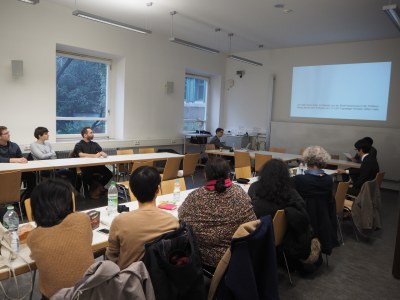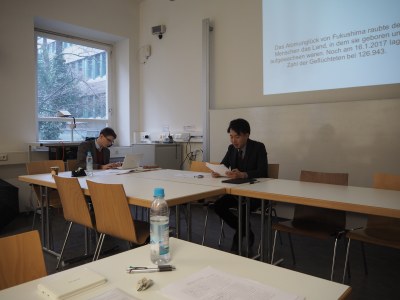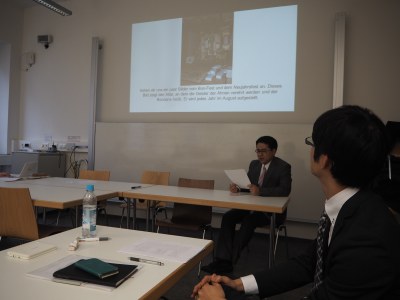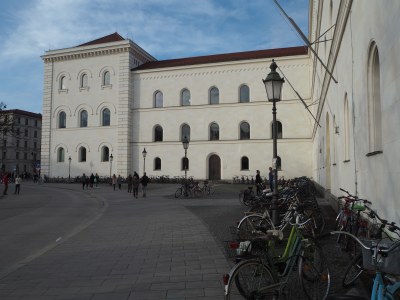

NEWS
2017.04.11
On Thursday, March 9, 2017, 14:00–16:30 (German time), Seijo University’s Center for Glocal Studies and Ludwig Maximilians University (LMU) Munich’s Japan Center jointly hosted the open workshop, “Die Dreifachkatastrophe von 2011 in der japanischen Volkskunde (The Triple Disaster of 2011 and Japanese Ethnology),” in Room V005 of the Professor-Huber-Platz Building on LMU Munich’s campus. The workshop formed part of Seijo University’s MEXT-supported Research Branding Program for Private Universities. The coordinators of the workshop were Shohei Oikawa (Faculty of Letters, Kawamura Gakuen Woman’s University) and Christian Goehlert (Japan Center, LMU Munich). The speakers and themes were as follows.
<Title>
Shohei Oikawa
“Outline of Main Theme: The Triple Disaster of 2011 and Japanese Ethnology”
Hideo Kato (Institute of Folklore Studies, Seijo University)
“Collecting and Exhibiting Disaster-Related Materials From General Households: Initiatives in Kenunma, Miyagi”
Hiroyuki Kaneko (Postdoc at the Japan Society for the Promotion of Science; Rikkyo University)
“How Does Radiation Affect Lives?: A Study of the Individuals Living 20 km From a Nuclear Power Station”
<Synopsis>
In the first presentation, Shohei Oikawa outlined the social circumstances of the disaster-stricken areas, focusing on the key concepts of “putting the past behind you” and “presentness.” Oikawa also discussed how ethnology, in view of its particularities, contributes—or potentially contributes—to research and society. Oikawa’s presentation set the tone for the presentations that followed; the first of which was by Hideo Kato. During his time at the National Museum of Japanese History, Kato was involved in efforts to rescue cultural heritage from the effects of disasters. Drawing upon this experience, Kato discussed how relics of everyday life can contribute to research and disaster-stricken communities.
The next speaker was Hiroyuki Kaneko. Kaneko discussed the results of his survey on the dietary lifestyles of people living within a 30-kilometer radius of the nuclear power station. He also discussed the potential of ethnology to raise questions about society. The presentations were followed by a spirited discussion. Attendees discussed German reactions to the nuclear disasters in Chernobyl and Tohoku, and they exchanged various other views about Japanese ethnology, Japanology in the Germanosphere, and German ethnology.
The proceedings of the workshop have been compiled in Japanese and German. The Center for Glocal Studies intends to publish these proceedings in the near future.




Professor-Huber-Platz Building on the LMU Munich campus